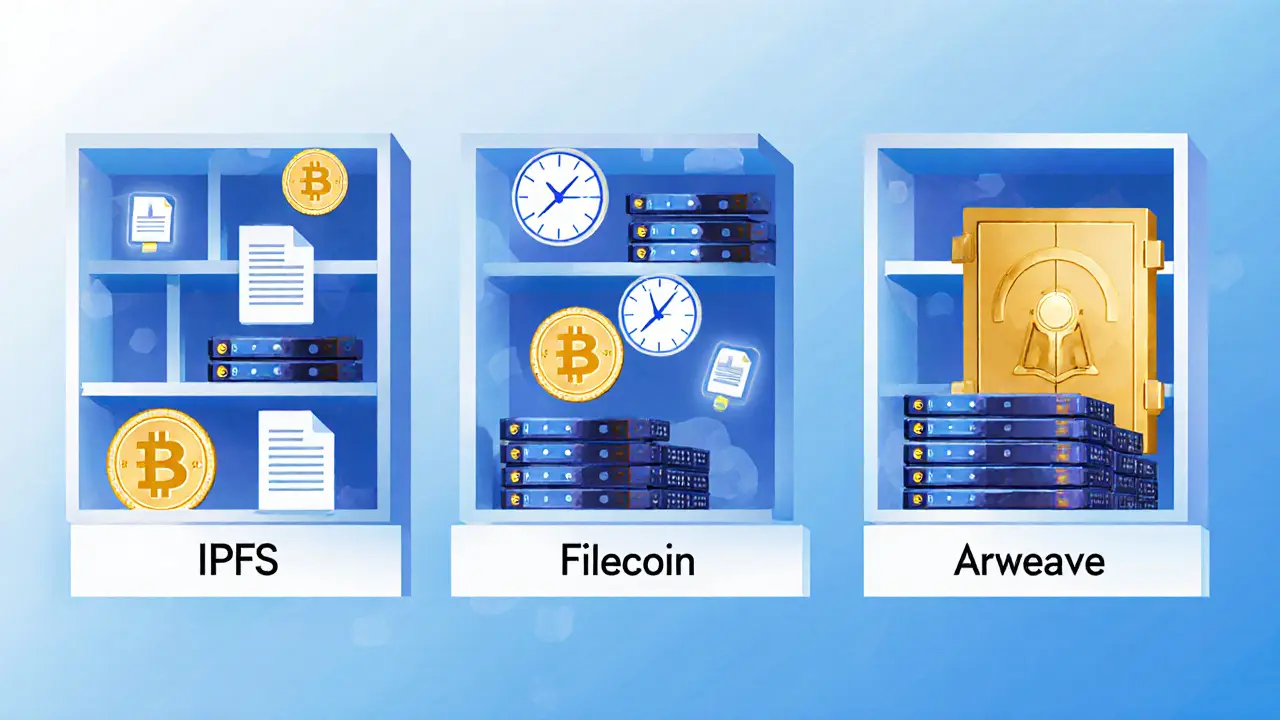Filecoin: What It Is, How It Works, and Why It Matters in Crypto
When you think of blockchain, you probably think of Bitcoin or Ethereum. But Filecoin, a decentralized storage network built on top of IPFS that rewards users for sharing unused hard drive space. Also known as the blockchain for data storage, it turns your spare computer storage into a global marketplace. Unlike Google Drive or Dropbox, Filecoin doesn’t rely on a single company to hold your files. Instead, it uses thousands of independent computers around the world — and you can earn Filecoin tokens (FIL) just by letting others store data on your hard drive.
Filecoin works hand-in-hand with IPFS, a peer-to-peer protocol for storing and sharing files in a distributed way. Also known as InterPlanetary File System, it’s what makes Filecoin possible. IPFS gives each file a unique address based on its content, not its location. That means if you upload a video to IPFS, it gets a hash like a fingerprint. Filecoin then steps in to make sure that file stays online by paying miners to keep copies. If a miner stops storing it, they lose rewards. This creates real economic pressure to keep data alive — no more broken links or vanished NFTs.
Why does this matter? Because most digital assets today — from NFTs to websites to medical records — are stored on centralized servers. If a company shuts down, goes bankrupt, or gets hacked, your data disappears. Filecoin fixes that by making storage permanent, verifiable, and decentralized. It’s not just about crypto speculation. It’s about building infrastructure for the next web. People use Filecoin to back up archives, host decentralized apps, store scientific data, and even preserve digital art in a way that can’t be erased.
And it’s not just theory. Real users are already storing petabytes of data on Filecoin. From universities to indie game developers, organizations are choosing it because it’s cheaper, more reliable, and censorship-resistant. You don’t need to be a developer to get involved — you can simply rent out your extra storage space and earn FIL. Or if you’re a trader, you can watch how Filecoin’s price reacts to network growth, storage deals, and upgrades.
Below, you’ll find real breakdowns of how Filecoin connects to other parts of crypto — from how it handles data storage differently than Ethereum, to why fake airdrops pretending to be Filecoin are everywhere, and what happens when storage providers fail. These aren’t guesses. They’re lessons from people who’ve been there — and got burned.
IPFS vs Arweave vs Filecoin: Which Decentralized Storage Solution Is Right for You?
Compare IPFS, Arweave, and Filecoin - three decentralized storage options with different models for cost, permanence, and reliability. Find out which one suits your needs for NFTs, data backups, or permanent archives.
learn more